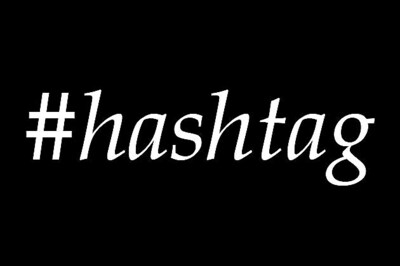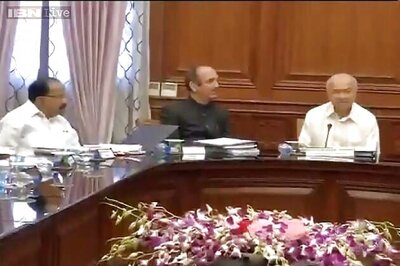
views
Washington: The United States House of Representatives on Tuesday rejected a plan backed by President Barack Obama that would have extended a 2-per cent payroll tax cut for two months for millions of Americans and bought time for talks on a full-year renewal.
Republicans controlling the chamber are instead demanding immediate negotiations with the Democrat-led Senate on a year-long plan.
If Congress does not pass a bill by the end of the year, payroll taxes will go up for 160 million workers on January 1. Almost 2 million people could lose unemployment benefits in January as well.
Congress' approval ratings are in the cellar, in part because of repeated partisan confrontations that brought the Treasury to the brink of a first-ever default last summer, and more than once pushed the vast federal establishment to the edge of a partial shutdown.
The standoff is certain to resonate with voters ahead of next November's presidential and congressional elections. President Barack Obama, who is running for a second term, has made extending the tax cut his year-end priority, arguing that it would pump money into the slowly recovering US economy.
The House vote, 229-193, kicks the measure back to the Senate, where the bipartisan two-month measure passed on Saturday by a sweeping 89-10 vote. The Senate then promptly left Washington for the holidays. Senate Majority Leader Harry Reid, a Democrat, says he will not allow bargaining until the House approves the Senate's short-term measure.
The vote caps a partisan debate on Obama's jobs agenda, which has featured numerous campaign-style appearances but little real bipartisan negotiation, other than Senate talks last week that produced the two-month extension.
The Senate's short-term, lowest-common-denominator approach would renew a 2 per centage point cut in the payroll tax, plus jobless benefits averaging about $300 a week for the long-term unemployed. The $33 billion cost would be financed by a .10 per centage point hike in home loan guarantee fees charged by mortgage giants Fannie Mae and Freddie Mac, which the administration says would raise the monthly payment on a typical $210,000 loan by about $15 a month.
The House passed a separate plan last week that would have extended the payroll tax cut for one year. But that version also contained spending cuts opposed by Democrats and tighter rules for jobless benefits.
Both the House and Senate bills included a provision designed to force Obama to make a decision on construction of the controversial Keystone XL pipeline, which would deliver up to 700,000 barrels of oil daily from tar sands in Alberta, Canada, to refineries in Texas. The provision requires him to issue the needed permit unless he declares the pipeline would not serve the national interest.
Democrats and the White House had reversed course and accepted Republican demands on Keystone, which contributed to sweeping Republican support for the Senate measure. The White House signaled that Obama would block the project.
Until this weekend, it was assumed that House Speaker John Boehner, a Republican, had signed off on the Senate measure. After all, it was agreed to by Boehner's trusted confidante, Senate Republican Leader Mitch McConnell. Boehner declined on several occasions Friday to reject the idea.
But rank-and-file House Republicans erupted in frustration at the Senate measure, which drops changes to the unemployment insurance system pressed by conservatives, along with cuts to President Barack Obama's signature health care law.
Also driving their frustration was that the Senate, as it so often does, appeared intent on leaving the House holding the bag — pressuring House lawmakers to go along with its plan.
Both sides were eager to position themselves as the strongest advocates of the payroll tax cut, with House Republicans accusing the Senate of lollygagging on vacation and Senate Democrats countering that the House was seeking a partisan battle rather than taking the obvious route of approving the stopgap bill to buy more time for negotiations.




















Comments
0 comment